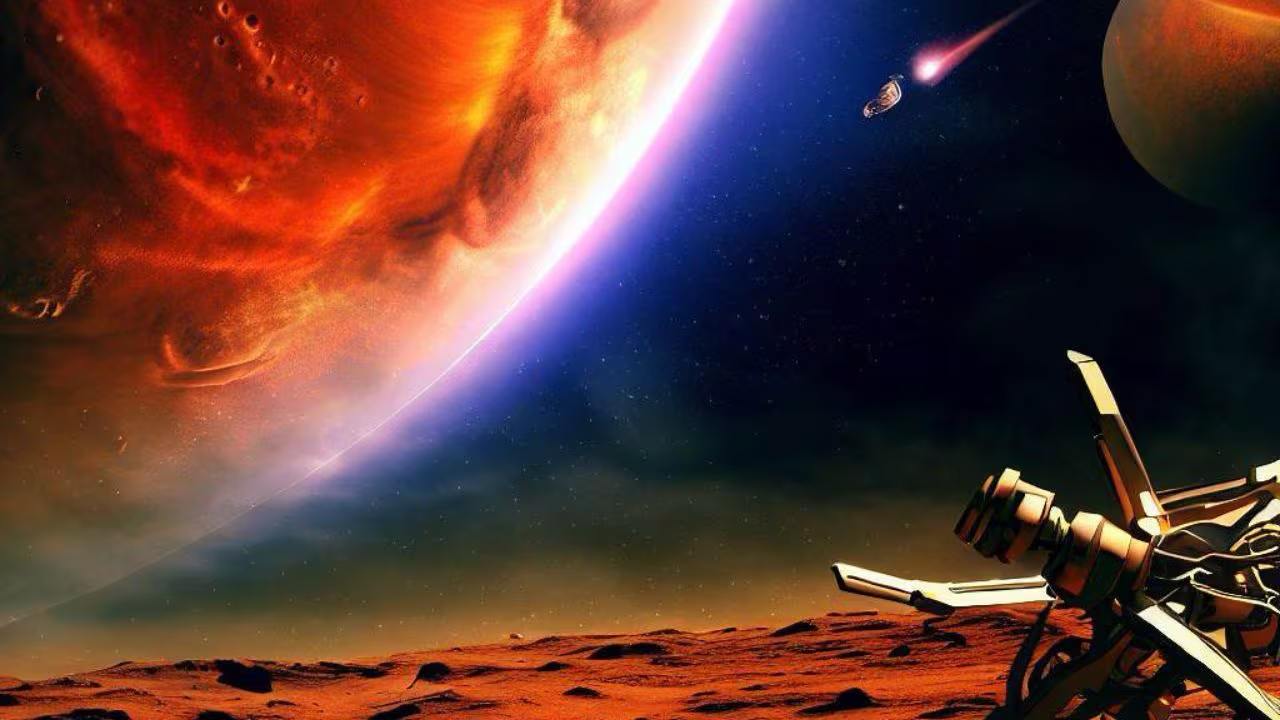In the past, the probability of finding human-like beings on other planets was considered to be very low.
Humanity might not be an extraordinary phenomenon, but the natural evolutionary result of our planet and possibly others. This is the conclusion of a study led by experts from Pennsylvania State University. The research proposes a new model on the development of intelligent life on Earth, the findings of which are detailed in the journal Science Advances.
This model challenges the “difficult steps” theory, which dates back several decades and argues that the emergence of intelligent life is a highly improbable event. Instead, the authors suggest that such a development might not have been so difficult or improbable. According to the Penn State team, this new interpretation of human origins increases the likelihood of intelligent life existing elsewhere in the universe.
“This is a significant change in the way we understand the history of life,” said Jennifer Macalady, professor of geosciences at Penn State and co-author of the article. ”It suggests that the evolution of complex life has less to do with luck and more to do with the interaction between life and its environment, which opens up new and exciting avenues of research in our quest to understand our origins and our place in the universe.”
Initially developed by theoretical physicist Brandon Carter in 1983, the “difficult steps” model claimed that the origin of life was extremely improbable, given the time it took for humans to evolve on Earth compared to the lifespan of the Sun. In this context, the probability of the existence of human-like beings on other planets was considered very low.

However, the new study argues that the Earth was in its early days an inhospitable environment for many forms of life. Key evolutionary advances, according to the researchers, were only achieved when the planet reached a “permissive” state.
The central prediction of the “difficult steps” model was that intelligent civilizations, if they existed at all, would be extremely rare in the universe. According to Carter’s interpretation, the Sun’s limited lifespan and the Earth’s age made it unlikely that crucial steps in evolution, such as the origin of life, the development of complex cells and the emergence of human intelligence, could be repeated on other planets.
The new study proposes that the emergence of humanity can be explained by the sequential opening of “habitability windows” throughout Earth’s history, driven by factors such as nutrient availability, sea surface temperature, ocean salinity levels, and atmospheric oxygen.
“Instead of basing our predictions on the lifespan of the Sun, we suggest using a geological timescale, since that is the time it takes for the atmosphere and landscape to change,” said Jason Wright, professor of astronomy and astrophysics at Penn State and co-author of the article.
Part of the reason why the “difficult steps” model has prevailed for so long, according to Wright, is that it emerged within astrophysics, a field traditionally used to understand the formation of planets and star systems.

The Penn State team’s article is the result of an interdisciplinary collaboration between physicists and geobiologists,who exchanged knowledge to develop a more nuanced understanding of how life evolves on planets like Earth.
The researchers plan to test their alternative model, which includes questioning the uniqueness of the proposed evolutionary “difficult steps”. Among the research projects recommended in the study are the search for biosignatures, such as the presence of oxygen, in the atmospheres of exoplanets, and the testing of the requirements of the “difficult steps” by studying unicellular and multicellular life forms under specific environmental conditions, such as reduced oxygen levels or extreme temperatures.
Beyond these projects, the team suggests that the scientific community should investigate whether events such as the origin of life, oxygenic photosynthesis, eukaryotic cells, animal multicellularity and the emergence of Homo sapiens are truly unique events in the history of the Earth.








